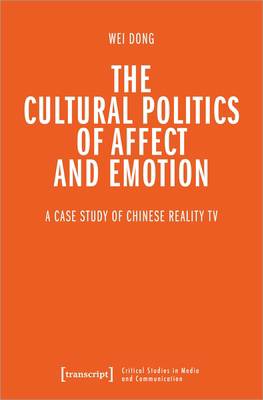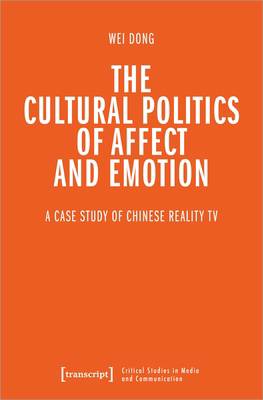
Bedankt voor het vertrouwen het afgelopen jaar! Om jou te bedanken bieden we GRATIS verzending (in België) aan op alles gedurende de hele maand januari.
- Afhalen na 1 uur in een winkel met voorraad
- In januari gratis thuislevering in België
- Ruim aanbod met 7 miljoen producten
Bedankt voor het vertrouwen het afgelopen jaar! Om jou te bedanken bieden we GRATIS verzending (in België) aan op alles gedurende de hele maand januari.
- Afhalen na 1 uur in een winkel met voorraad
- In januari gratis thuislevering in België
- Ruim aanbod met 7 miljoen producten
Zoeken
€ 93,45
+ 186 punten
Omschrijving
Against the background of the media commercialization reform since the 1990s in China and drawing on the case of »X-Change« (2006-2019), Wei Dong investigates the affective meaning-making mechanism in the multimodal text of Chinese reality TV. The focus lies on the ways in which emotions are appropriated and disciplined by regimes of power and identity, and the ways in which affect - in this case primarily kuqing (bitter emotions) communicated by the material and the body - have the potential to challenge or exceed existing relations of power in the mediascape. Wei Dong shows how Chinese reality TV provides a historical and theoretical opportunity for understanding the affective structures of contemporary China in the dynamic process of fracture and integration.
Specificaties
Betrokkenen
- Auteur(s):
- Uitgeverij:
Inhoud
- Aantal bladzijden:
- 234
- Taal:
- Engels
- Reeks:
Eigenschappen
- Productcode (EAN):
- 9783837662849
- Verschijningsdatum:
- 27/08/2022
- Uitvoering:
- Paperback
- Formaat:
- Trade paperback (VS)
- Afmetingen:
- 152 mm x 229 mm
- Gewicht:
- 322 g

Alleen bij Standaard Boekhandel
+ 186 punten op je klantenkaart van Standaard Boekhandel
Beoordelingen
We publiceren alleen reviews die voldoen aan de voorwaarden voor reviews. Bekijk onze voorwaarden voor reviews.









